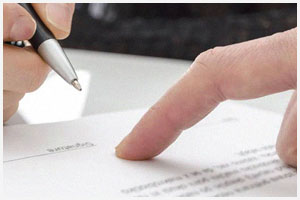
Although they differ in functionality, Good Agricultural Practices and the GLOBALGAP system are similar in many respects. However, although the two documents are alike, they are different. The World Trade Organization has established an agreement on food safety regulations in order to maintain international standards on "Animal and Plant Health" in the trade of agricultural products. The first of the Sanitary and Phytosanitary Measures (SPS Agreement) stands for Hazard Analysis and Critical Control Points (HACCP) in food, and the other for "Good Agricultural Practices" GAP (Good Agricultural Practices). The World Food Organization (FAO) has also worked on the principles of Good Agricultural Practices (ITU). Finally, major retailers in the European Union countries came together to form the European Retailers Product Working Group (EUREP) and in 1999 prepared the EUREPGAP (European Retailers Product Working Group Good Agricultural Practices Protocol) on the principles of good agricultural practices in fresh fruits and vegetables.
The idea of Good Agricultural Practices was first introduced in 1997 in European Union countries. The retailer companies operating here have set up the European Retailers Product Working Group (Euro Retailer Producer Group) on the growing population, increasing nutritional needs, changing nutritional habits, and increasingly becoming a threat to human health and the environment. (EUREP). These retailers are the largest retailers holding three quarters of the fresh fruit and vegetable market in the European Union countries. As a result of their joint efforts, they have published the Good Agriculture Practices Protocol (GAP) to meet the reliable food demands of consumers. This protocol sets out the internationally accepted minimum requirements for agricultural production.
All operations carried out during production should be recorded by the farmers and reserved for subsequent checks. In these records; product type, geographical location of the product, fertilizer application time, application reason, technical permission, trade name and amount of chemical used, application tool, operator's name and how many days after application should be harvested, irrigation time, method and amount should include information.
Today, while Good Agricultural Practices certification studies are carried out, GLOBALGAP certification studies are also carried out. As mentioned above, both certification systems are based on the same criteria. However, GLOBALGAP Certificate is a certificate that organizations want to take part in international markets. This document is required as a prerequisite for exporting companies that send fresh fruit and vegetables to the European Union countries. On the other hand, Good Agricultural Practices Certificate is a document that organizations want to take part in domestic markets.
Today, in order to ensure the integrity of implementation, a number of studies are being carried out to turn the Good Agricultural Practices Certificate and the GLOBALGAP Certificate into a single document. These activities are carried out by the Committee on Good Agricultural Practices established within the Ministry of Food, Agriculture and Rural Affairs.
Good Agricultural Practices certification studies in our country are carried out by the certification bodies authorized by the Ministry of Food, Agriculture and Rural Affairs.